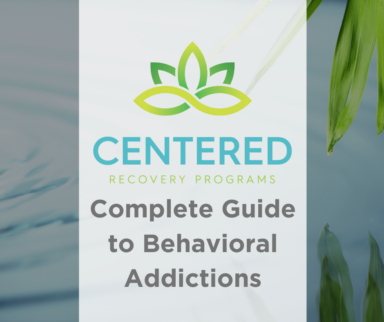Centered Recovery’s unique mindfulness program doesn’t make any claims that aren’t backed by experts in the fields of psychology, neurology, mental health, and addiction. Below are just a few examples of published research that were referenced or used in the creation of this cutting edge, comprehensive program.
Mindfulness-Based Treatment to Prevent Addictive Behavior Relapse: Theoretical Models and Hypothesized Mechanisms of Change. Katie Witkiewitz, Sarah Bowen, Erin N. Harrop, Haley Douglas, Matthew Enkema, and Carly Sedgwick. Retrieved from https://www.ncbi.nlm.nih.gov/pmc/articles/PMC5441879/
Trying to be happier really can work: Two experimental studies, Yuna L. Ferguson, retrieved from https://www.tandfonline.com/doi/abs/10.1080/17439760.2012.747000
Meditative Therapies for Reducing Anxiety: A Systematic Review and Meta-analysis of Randomized Controlled Trials, Chen et al, retrieved from https://www.ncbi.nlm.nih.gov/pmc/articles/PMC3718554/?_escaped_fragment_=po=6.57895
The Effect of Mindfulness-Based Therapy on Anxiety and Depression: A Meta-Analytic Review, Hoffman et al, https://www.ncbi.nlm.nih.gov/pmc/articles/PMC2848393/
Understanding Meditation: How Attention Changes Our Brains. Michael Stanclift, N.D., retrieved from https://www.huffingtonpost.com/michael-stanclift-nd/neuroplasticity_b_1131652.html
Plasticity in the frequency representation of primary auditory cortex following discrimination training in adult owl monkeys. GH Recanzone, CE Schreiner and MM Merzenich, retrieved from https://www.jneurosci.org/content/13/1/87.long
How Science is Unlocking the Secrets of Addiction. Fran Smith, retrieved from https://www.nationalgeographic.com/magazine/2017/09/the-addicted-brain/#close
Antidepressant Use Among Persons Aged 12 and Over: United States, 2011–2014. Pratt et al, retrieved from https://www.cdc.gov/nchs/data/databriefs/db283.pdf
Facts & Statistics, retrieved from https://adaa.org/about-adaa/press-room/facts-statistics
Alcohol Facts and Statistics, retrieved from https://www.niaaa.nih.gov/alcohol-health/overview-alcohol-consumption/alcohol-facts-and-statistics
Mindfulness-Based Therapies for Substance Use Disorders: Part 1 (Editorial). Marcus et al, retrieved from https://www.ncbi.nlm.nih.gov/pmc/articles/PMC2818765/
Practical support aids addiction recovery: the positive identity model of change, Johansen, et al, retrieved from https://bmcpsychiatry.biomedcentral.com/articles/10.1186/1471-244X-13-201
Mindfulness-Based Relapse Prevention for Substance Use Disorders: A Pilot Efficacy Trial, Bowen, et al, retrieved from https://www.ncbi.nlm.nih.gov/pmc/articles/PMC3280682/
Relative efficacy of mindfulness-based relapse prevention, standard relapse prevention, and treatment as usual for substance use disorders: a randomized clinical trial, Bowen, et al, retrieved from https://www.ncbi.nlm.nih.gov/pubmed/24647726
The Clinical Efficacy of Mindfulness-Based Treatments for Alcohol and Drugs Use Disorders: A Meta-Analytic Review of Randomized and Nonrandomized Controlled Trials, Cavicchioli M., Movalli M., Maffei C., retrieved from https://www.karger.com/Article/FullText/490762
Meditation and psychotherapy: A rationale for the integration of dynamic psychotherapy, the relaxation response, and mindfulness meditation. Kutz, I., Boryensko, J.Z. & Benson, H. https://psycnet.apa.org/record/1985-15147-001
Mindfulness‐Based Interventions in Context: Past, Present, and Future, Jon Kabat-Zinn. retrieved from https://onlinelibrary.wiley.com/doi/abs/10.1093/clipsy.bpg016
Mindfulness-based Relapse Prevention for Alcohol and Substance Use Disorders, Witkiewitz, Marlatt, and Walker. retrieved from http://www.addictioneducation.co.uk/Witkiewitz%20et%20al%202005.MBRP.pdf
Human Needs, Buddhist Psychology and Mindfulness, Michael Formica. Retrieved from https://www.psychologytoday.com/us/blog/enlightened-living/201301/human-needs-buddhist-psychology-and-mindfulness
A modern take on Maslow’s theory, Virginia Dowdell. Retrieved from https://thegriff.ca/2016/01/modern-take-maslows-theory/
Maslow’s Hierarchy of Needs, McLeod. Retrieved from http://highgatecounselling.org.uk/members/certificate/CT2%20Paper%201.pdf
Impacts of Drugs on Neurotransmission, by Carl Sherman, retrieved from https://www.drugabuse.gov/news-events/nida-notes/2017/03/impacts-drugs-neurotransmission
Alcohol, Sleep, and Why You Might Re-think that Nightcap, by Jordan Gaines Lewis, retrieved from https://www.nature.com/scitable/blog/mind-read/alcohol_sleep_and_why_you
Drug Abuse, Dopamine, and the Brain’s Reward System retrieved from https://www.hazeldenbettyford.org/education/bcr/addiction-research/drug-abuse-brain-ru-915
Feeling Sleepy? An Urge to Nap Is Built In, by Daniel Goleman, retrieved from https://www.nytimes.com/1989/09/12/science/feeling-sleepy-an-urge-to-nap-is-built-in.html
Water, Hydration and Health, by Barry M. Popkin, Kristen E. D’Anci, and Irwin H. Rosenberg, retrieved from https://www.ncbi.nlm.nih.gov/pmc/articles/PMC2908954/
The Far-Reaching Effects of Believing People Can Change: Implicit Theories of Personality Shape Stress, Health, and Achievement During Adolescence. Yeager, et al, retrieved from https://www.researchgate.net/publication/262538735_The_far-reaching_effects_of_believing_people_can_change_Implicit_theories_of_personality_shape_stress_health_and_achievement_during_adolescence
Mind-sets matter: a meta-analytic review of implicit theories and self-regulation. Burnette, et al. retrieved from https://www.ncbi.nlm.nih.gov/pubmed/22866678
The Influence of Emotion on Cognitive Control: Relevance for Development and Adolescent Psychopathology. Sven Mueller, retrieved from https://www.ncbi.nlm.nih.gov/pmc/articles/PMC3223617/.
Perception And Reality. RJ Rummel, retrieved from https://www.hawaii.edu/powerkills/DPF.CHAP7.HTM
Attending to the present: mindfulness meditation reveals distinct neural modes of self-reference, Farb, et al. retrieved from https://academic.oup.com/scan/article/2/4/313/1676557
Mindfulness-Based Relapse Prevention for Substance Use Disorders: A Pilot Efficacy Trial, Bowen, et al. retrieved from https://www.tandfonline.com/doi/abs/10.1080/08897070903250084
Mindfulness-based Relapse Prevention for Addictive Behaviors: A Clinician’s Guide, Bowen, et al. https://books.google.com/books?hl=en&lr=&id=dsNG6s-3faAC&oi=fnd&pg=PP1&dq=mindfulness+based+relapse+prevention&ots=BihmddNiiw&sig=BJGUOFl7PmuuXqa4QOHxIKj5aj8#v=onepage&q=mindfulness%20based%20relapse%20prevention&f=false
When Belief Creates Reality, Mark Snyder, retrieved from https://www.sciencedirect.com/science/article/pii/S006526010860146X
Urge Surfing. retrieved from https://med.dartmouth-hitchcock.org/documents/Urge-Surfing.pdf
Surfing the Urge: Experiential Acceptance Moderates the Relation Between Automatic Alcohol Motivation and Hazardous Drinking. Ostafin and Marlatt, retrieved from https://guilfordjournals.com/doi/abs/10.1521/jscp.2008.27.4.404
Mindfulness-based stress reduction for stress management in healthy people: a review and meta-analysis, A Chiesa and A Serretti, https://www.ncbi.nlm.nih.gov/books/NBK77489/.
When science meets mindfulness, Alvin Powell, https://news.harvard.edu/gazette/story/2018/04/harvard-researchers-study-how-mindfulness-may-change-the-brain-in-depressed-patients/.
Effects of Mindfulness on Psychological Health: A Review of Empirical Studies, Shian-Ling Keng, Moria J. Smoski, Clive J. Robins, https://www.ncbi.nlm.nih.gov/pmc/articles/PMC3679190/.
Sleep Disorders in Substance Abusers, How Common Are They?, Youssef Mahfoud, MD, Farid Talih, MD, David Streem, MD, and Kumar Budur, MD retrieved from https://www.ncbi.nlm.nih.gov/pmc/articles/PMC2766287/
Sleep quality and emotions affect opioid addiction recovery, Kristie Auman-Bauer, retrieved from https://news.psu.edu/story/443476/2017/01/04/sleep-quality-and-emotions-affect-opioid-addiction-recovery
The Evolutionary Argument Against Reality, Amanda Gefter, retrieved from https://www.quantamagazine.org/the-evolutionary-argument-against-reality-20160421/
Human Vision as a Reality Engine. Hoffman, retrieved from http://cogsci.uci.edu/~ddhoff/HoffmanFABBS.pdf
Addiction as temporal disruption: interoception, self, meaning. Kemp, retrieved from https://link.springer.com/article/10.1007%2Fs11097-018-9578-7
Effects of coping skills training on generalized self-efficacy and locus of control. Ronald Smith, retrieved from https://psycnet.apa.org/record/1989-20710-001
Handbook for Strategic HR – Section 3: Use of Self as an Instrument of Change. Network, et al. Retrieved from https://books.google.com/books?hl=en&lr=&id=oDRxCQAAQBAJ&oi=fnd&pg=PT53&dq=deep+listening&ots=xU0FpwaJfg&sig=EtkOvKsAnd8GP3scu4Igq4U4Hkc#v=onepage&q=deep%20listening&f=false
Listening: A Vital Skill. Kenneth C. Petress. retrieved from https://go.galegroup.com/ps/anonymous?id=GALE%7CA62980773&sid=googleScholar&v=2.1&it=r&linkaccess=abs&issn=00941956&p=AONE&sw=w
Why Don’t We Listen Better?: Communicating & Connecting in Relationships. Jim Petersen, retrieved from https://books.google.com/books?hl=en&lr=&id=3bmS4oovMnQC&oi=fnd&pg=PR5&dq=better+listening+for+better+communication&ots=qAtKuOlPZJ&sig=rlJMdEeub-ebOM01-iiDfUJRLs4#v=onepage&q=better%20listening%20for%20better%20communication&f=false
Understanding Delusions. Chandra Kiran, Suprakash Chaudhury, retrieved from https://www.ncbi.nlm.nih.gov/pmc/articles/PMC3016695/
The consequences of fear. David Ropeik, retrieved from https://www.ncbi.nlm.nih.gov/pmc/articles/PMC1299209/
Fear, Anger, and Risk. Lerner and Keltner, retrieved from https://fbaum.unc.edu/teaching/articles/Lerner-2001-FearAngerRisk.pdf
How does stress increase risk of drug abuse and relapse? Since R. retrieved from https://www.ncbi.nlm.nih.gov/m/pubmed/11797055/
Measuring Codependency, Fisher and Spann. retrieved from https://www.tandfonline.com/doi/abs/10.1300/J020V08N01_06
The Role of Acceptance and Job Control in Mental Health, Job Satisfaction, and Work Performance, Bond and Bunce. retrieved from https://psycnet.apa.org/record/2003-09785-007
Narratives of recovery from addictive behaviours, Hanninen and Koski-Jannes, retrieved from https://onlinelibrary.wiley.com/doi/abs/10.1046/j.1360-0443.1999.941218379.x
Co-Dependency. https://www.mentalhealthamerica.net/co-dependency
How emotions affect logical reasoning: evidence from experiments with mood-manipulated participants, spider phobics, and people with exam anxiety, by Nadine Jung, Christina Wranke, Kai Hamburger, and Markus Knauff retrieved from: https://www.ncbi.nlm.nih.gov/pmc/articles/PMC4050437/
The role of positive emotions in positive psychology: the broaden-and-build theory of positive emotions, by Fredrickson, B. American Psychologist, 56 (3), 218–226, retrieved from http://dx.doi.org/10.1037/0003-066x.56.3.218
Mindfulness and Emotion Regulation: Insights from Neurobiological, Psychological, and Clinical Studies, by Simón Guendelman, Sebastián Medeiros, and Hagen Rampes, retrieved from https://www.ncbi.nlm.nih.gov/pmc/articles/PMC5337506/
Stress relief from laughter? It’s no joke, retrieved from: https://www.mayoclinic.org/healthy-lifestyle/stress-management/in-depth/stress-relief/art-20044456
Social laughter is correlated with an elevated pain threshold, by R. I. M. Dunbar , Rebecca Baron , Anna Frangou , Eiluned Pearce , Edwin J. C. van Leeuwen , Julie Stow , Giselle Partridge , Ian MacDonald , Vincent Barra and Mark van Vugt. Published:14 September 2011https://doi.org/10.1098/rspb.2011.1373 retrieved from https://royalsocietypublishing.org/doi/full/10.1098/rspb.2011.1373
Laugh it Up: Why Laughing Brings Us Closer Together, retrieved from: https://www.psychalive.org/laugh-it-up-why-laughing-brings-us-closer-together/
The Effects of Two Novel Gratitude and Mindfulness Interventions on Well-Being, Karen O’ Leary, MA, and Samantha Dockray, PhD, retrieved from https://www.researchgate.net/profile/Karen_Matvienko-Sikar/publication/274317810_The_Effects_of_Two_Novel_Gratitude_and_Mindfulness_Interventions_on_Well-Being/links/55310e440cf2f2a588abfccd/The-Effects-of-Two-Novel-Gratitude-and-Mindfulness-Interventions-on-Well-Being.pdf
The Science and Research on Gratitude and Happiness, Erica Stoerkel, retrieved from https://positivepsychology.com/gratitude-happiness-research/
The brain on silent: mind wandering, mindful awareness, and states of mental tranquility. Vago and Zeidan, retrieved from https://www.ncbi.nlm.nih.gov/pmc/articles/PMC5866730/
Know Your Brain: Default Mode Network. retrieved from https://neuroscientificallychallenged.com/blog/know-your-brain-default-mode-network
The brain’s default network: anatomy, function, and relevance to disease. Buckner, et al. retrieved from https://www.ncbi.nlm.nih.gov/pubmed/18400922
The Psychology Behind New Years Resolutions. Mark Griffiths, retrieved from https://www.iflscience.com/brain/psychology-new-year-s-resolutions/
Mental practice and physical practice in learning a motor skill. Twining, W. E. retrieved from https://psycnet.apa.org/record/1950-03080-001.
The Future of Memory: Remembering, Imagining, and the Brain. Spachter, et al. retrieved from https://www.ncbi.nlm.nih.gov/pmc/articles/PMC3815616/
4 Scientific Reasons Why Visualizations Will Increase Your Chances to Succeed. Emilie Pelletier, retrieved from https://entrepreneurs.maqtoob.com/4-scientific-reasons-why-visualization-will-increase-your-chances-to-succeed-5515ef2dbdb7
Brain Scans Show How Meditation Improves Mental Focus. Brian Gowin
Relative Efficacy of Mindfulness-Based Relapse Prevention, Standard Relapse Prevention, and Treatment as Usual for Substance Use Disorders
Sarah Bowen, PhD; Katie Witkiewitz, PhD; Seema L. Clifasefi, PhD; et al
JAMA Psychiatry. 2014;71(5):547-556
“For individuals in aftercare following initial treatment for substance use disorders, RP and MBRP, compared with TAU, produced significantly reduced relapse risk to drug use and heavy drinking. Relapse prevention delayed time to first drug use at 6-month follow-up, with MBRP and RP participants who used alcohol also reporting significantly fewer heavy drinking days compared with TAU participants. At 12-month follow-up, MBRP offered added benefit over RP and TAU in reducing drug use and heavy drinking. Targeted mindfulness practices may support long-term outcomes by strengthening the ability to monitor and skillfully cope with discomfort associated with craving or negative affect, thus supporting long-term outcomes.”
From the Journal of Substance Abuse Treatment – April 2017:
Mindfulness treatment for substance misuse: A systematic review and meta-analysis.
By: Wen Li, Matthew O. Howard, Eric L. Garland, Patricia McGovern, Michael Lazar
Funded by the National Institutes of Health
Abstract
High rates of relapse following substance misuse treatment highlight an urgent need for effective therapies. Although the number of empirical studies investigating effects of mindfulness treatment for substance misuse has increased dramatically in recent years, few reviews have examined findings of mindfulness studies. Thus, this systematic review examined methodological characteristics and substantive findings of studies evaluating mindfulness treatments for substance misuse published by 2015. The review also includes the first meta-analysis of randomized controlled trials of mindfulness treatments for substance misuse. Comprehensive bibliographic searches in PubMed, PsycInfo, and Web of Science, identified 42 pertinent studies. Meta-analytic results revealed significant small-to-large effects of mindfulness treatments in reducing the frequency and severity of substance misuse, intensity of craving for psychoactive substances, and severity of stress. Mindfulness treatments were also effective in increasing rates of posttreatment abstinence from cigarette smoking compared to alternative treatments. Mindfulness treatment for substance misuse is a promising intervention for substance misuse, although more research is needed examining the mechanisms by which mindfulness interventions exert their effects and the effectiveness of mindfulness treatments in diverse treatment settings.
Mindfulness Meditation Is Associated With Structural Changes in the Brain
Mindfulness practice leads to increases in regional brain gray matter density.
Hölzel BK1, Carmody J, Vangel M, Congleton C, Yerramsetti SM, Gard T, Lazar SW.
According to a recent study, practicing mindfulness meditation appears to be associated with measurable changes in the brain regions involved in memory, learning, and emotion. Mindfulness meditation focuses attention on breathing to develop increased awareness of the present. Previous research has demonstrated that mindfulness meditation may reduce symptoms of anxiety, depression, and chronic pain, but little is known about its effects on the brain. The focus of the current study — published in the journal Psychiatry Research: Neuroimaging — was to identify brain regions that changed in participants enrolled in an 8-week mindfulness-based stress reduction program.








